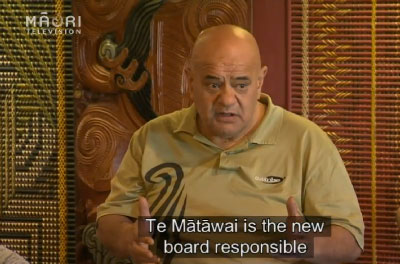
AUCKLAND (Māori Television/Radio New Zealand/Pacific Media Watch): The new agency responsible for the revitalisation of te reo Māori has focused on New Zealand media and new technology to encourage fluency of the language.
Te Mātāwai held its first hui this month to discuss the aims of the organisation and the direction of te reo Māori in the country.
According to Radio New Zealand broadcaster Scotty Morrisson, who is the media representative on the board, said implementing a social media strategy is important for the agency in terms of getting young people to use the language.
"We definitely want to get them involved because teenagers tend to set trends, and if they set a trend that Māori is something they should take up and it's trendy to speak Māori, then we want them involved."
‘biggest challenge’
Māori Television also reported the chair of Te Mātāwai, Waihoroi Shortland, told broadcasters this week to come up with solutions on how to encourage the use of te reo.
“The biggest challenge I put forward is don't think Te Mātāwai will be preparing your strategies, you tell us what you want for the language and we'll meet with the Government to discuss the financials for broadcasting and the implementation of the language.
“Then they'll tell us what to cut and where to implement the language. When that's done, we'll head back to the Māori broadcasters and give the recommendations needed for the benefit of the language.”
'It's really hard'
In September the Pacific Media Centre met with former Māori party co-leader Sir Pita Sharples at a Human Rights Commission forum. Sharples also targeted the media and said it was responsible for creating an environment that would support the learning of the language but also encouraging the correct pronunciation of te reo Māori.
'Media training in pronunciation is the first priority to have te reo respected in New Zealand,' he said.
“It’s really hard for our kids. When our kids go to the mall, they talk Māori the whole time. But the world around them doesn’t support what they are doing.”
· Indigenous rights in New Zealand: Saving te reo Māori
This work is licensed under a Creative Commons Attribution-NonCommercial 3




